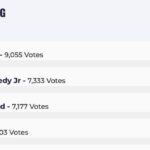
It is no surprise that Republicans and Democrats are trying to stop third-party and independent presidential candidates from being on the ballot. Each state has different rules on how to get onto the ballot and rules change based on the motivations of the party in power. For example, after Ross Perot’s record performance of almost 19% in 1992 for the next election, the secretary of state and state legislators changed the rules for independent candidates which then forced Perot to create his own party. Many candidates are doing what they can to get on the ballot and have different ways based on the states. I wanted to look at the three hardest states to get on the ballot and talk about how candidates are trying to get on.
New York
In 2020, the Empire State enacted election reform laws, with speculation being that the state legislator wanted to crack down on outsider descent. Before the new laws, parties only needed 50,000 votes every four years to qualify, but now they require 130,000 votes or 2% of votes cast, with the qualification process occurring every two years. The Green and Libertarian parties of New York responded to this by issuing a challenge to the Supreme Court which did not end up being heard. Since both parties don’t have ballot access, they plan to petition as independent candidates. In New York state you need 45,000 signatures to qualify as an independent presidential candidate. The petitioning period starts on April 16th and ends on May 28th. The Robert F Kennedy Jr. (“RFK Jr”) campaign along with the Libertarian party are starting to plan out their petition for New York.
Texas
They say everything’s bigger in Texas and in terms of ballot access, it definitely is. The Green and Libertarian parties both have automatic ballot access in Texas, but for RFK Jr. and Dr. Cornel West (“Dr. West”) who are independents, they need 113,151 signatures. The petition period started at the beginning of the month and ends May 13th which means candidates have some time to go around the large state.
California
California is the largest state in population and has the most registered voters. California has four recognized third parties. They are the Libertarian, Green, American Independent, and Peace and Freedom party. Interestingly enough, the Peace and Freedom party does not operate nationally and instead is just in California. They recently held a primary and the candidates were Claudia de la Cruz who is also the Party for Socialism nominee, Dr. West who is running as an Independent, and Jasmine Sherman running as a Green candidate. Claudia de la Cruz won this primary, giving her campaign ballot access in the Golden State. For Dr. West and RFK Jr., instead of running as an independent in the state, they are forming their own parties. This makes it easier as it only requires 72,000 registered members as being an independent requires 219,403.
In conclusion, there are many hurdles for third-party and independent candidates and the biggest and most important one is ballot access. As this election cycle goes on we will have to wait and see who qualifies for each state.
Recent Posts

A look at the states preventing more voices and choices from being on the ballot

37-Year-Old Simon Harris Becomes Ireland’s Youngest Prime Minister

**TONIGHT-LIVE STREAMED** FIVE PRESIDENTIAL CANDIDATES TO DEBATE ON FREE & EQUAL STAGE IN NYC

SEVEN PRESIDENTIAL CANDIDATES INVITED TO DEBATE


